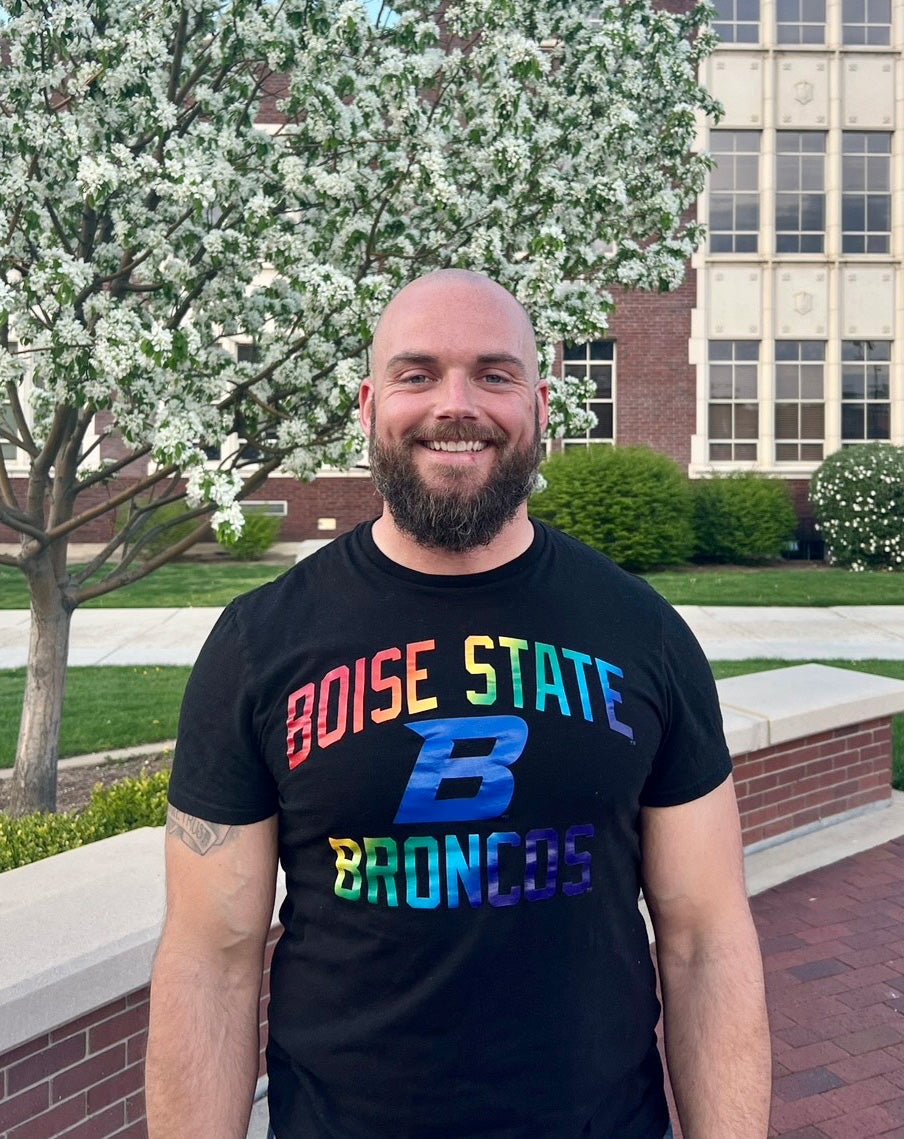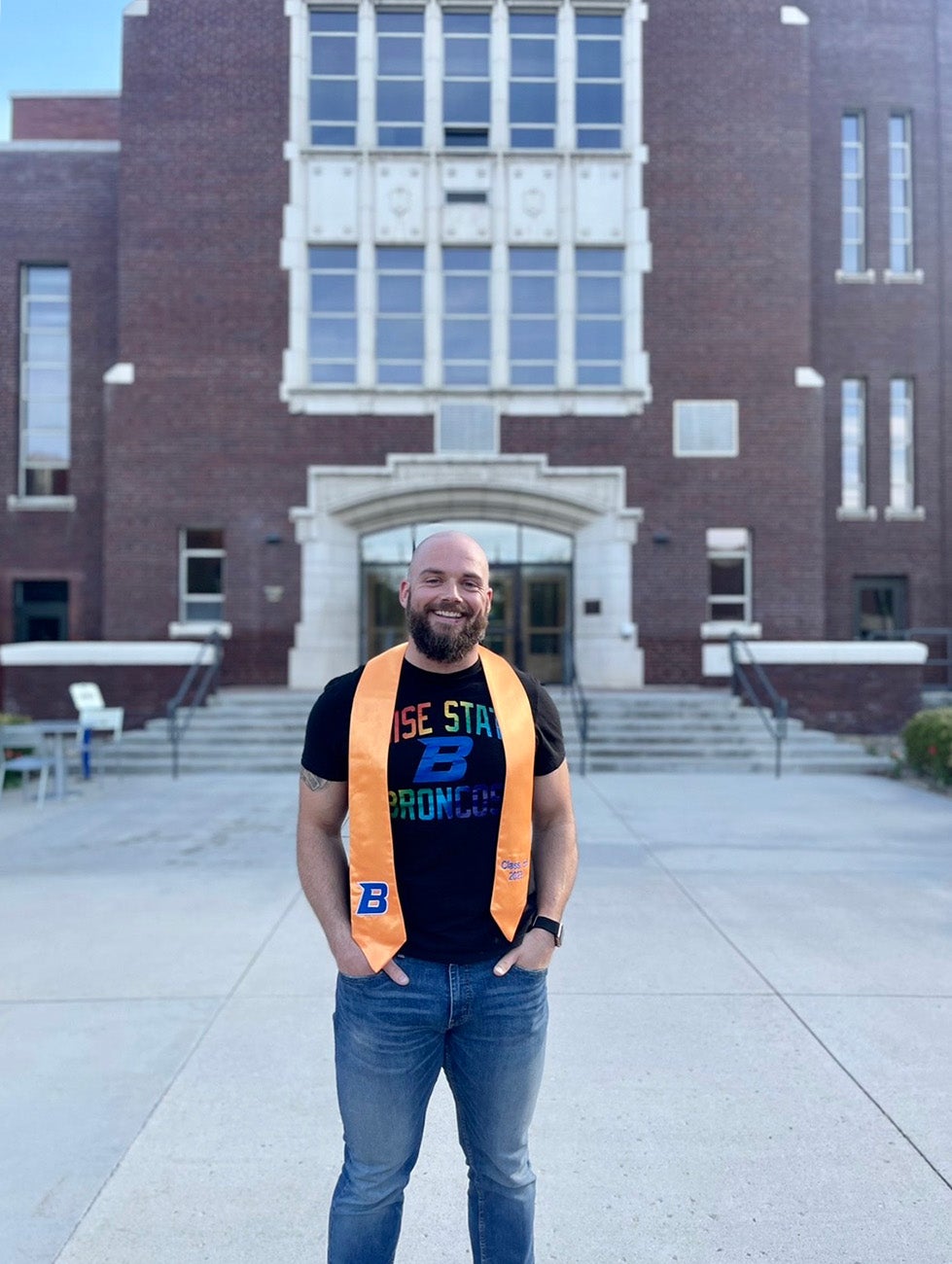Applying for jobs can be daunting, but senior Chris Hughes is convinced it doesn’t need to be as hard as people make it out to be. And he should know; he likes to do difficult things.
“If there’s something to do that’s really hard, or there’s other things to do that are easier, I’ll kind of pick the hard one. Which that sounds…not intuitive,” he admitted with a laugh.

Hughes has a track record of choosing the hard path. When he joined the military, he attempted Green Beret training instead of joining straight into the Army infantry. In nursing school, he pursued working with the sickest patients in intensive care units.
And upon graduation, he foresees himself picking a hard thing again. He wants to become a certified registered nurse anesthetist, an advanced practice position requiring several years of intense schooling.
So when it came to applying for a job to begin after earning his bachelor’s, Hughes aimed high again, applying to nationally-recognized teaching hospitals like Duke University, Yale, Mayo Clinic and Johns Hopkins.
And his hard work paid off.
Not searching aimlessly
When applying for jobs, it’s helpful to have some criteria or dream in mind to give you direction. Otherwise, the options may seem endless and overwhelming.
“I know a lot of people apply to the places they like, but for me it was about applying to the hospitals and the jobs that I wanted rather than the states or cities,” said Hughes. “I made it a goal to try and apply to those hospitals that had [certified registered nurse anesthetist] programs attached to them,” he said.
Many of these are in the eastern United States. But with the rise of remote interviewing, Hughes doesn’t view distance as a barrier for nurses seeking jobs.
“I’m sure a couple of years ago it would have been in-person visits and flights, and I was willing to fly if I had to,” he said. “But with Zoom being such a thing, it made it so much easier. You could just apply anywhere.”
So he did. After graduation this semester, Hughes begins his career at Johns Hopkins Hospital in Baltimore, Maryland.
Getting practical: What should I do?
Hughes’ advice to student nurses? “In terms of trying to find a job, just apply,” he said. “Apply early. Work on your résumé, then find a mentor and show it to them. Have them look it over and then…apply early.”
Hughes didn’t stumble blindly into job applications. He had a network of support, from the encouragement of friends – “I didn’t even really think about applying to [Johns] Hopkins [Hospital] until one of my friends actually applied,” – to multiple people reviewing his résumé.
Hughes sought feedback from Sarah Wilson, a mentor and the director of the academic integrity program in the Office of the Dean of Students. He also asked Emily Davies, an employer engagement specialist and School of Nursing liaison in Career Services, to look over his résumé.
“Chris was very self motivated and I was there for support on the job search process more than anything else,” Davies said. “I helped provide him with resources on ICU new graduate programs that he was interested in and connected with some recruiters to get more details about the programs. I helped him with his résumé and some interview tips, but he was prepared tremendously from the start.”
Boise State’s Career Services has many resources for nursing students, including résumé and cover letter assistance, mock interviews, job search advising and help connecting students to recruiters. Davies encourages students to contact the office early on in the program.
“It is never too soon to connect with Career Services,” she said. Her top piece of advice? “Schedule a mock interview with us so that you are well prepared for your interviews.”
Persevere to find the right job
From building a résumé to submitting applications and interviewing, it’s very common for the job search process to take many months. But Hughes is quick to reassure his peers not to get discouraged; if anything, raise the bar for yourself.
“If there’s a job that you think that you’re not qualified for, just apply anyway,” Hughes said. “The worst they can say is no. And obviously it sucks,” he said with a laugh, no stranger to disappointment himself.

The first time he went to college right out of high school, Hughes didn’t invest much in his education. And although he first was exposed to medical training in the Army, his military career didn’t work out the way he hoped it would, either. “I’ve obviously failed at a lot of things up to this point,” he said. “But it’s all just really good lessons that I’ve learned and things that have helped me.”
So Hughes doesn’t view a potential employer’s rejection as the end of the line. He recognizes the value new nurses bring to the profession and encourages his peers to keep applying until they find an organization that recognizes their value, too. “I feel like new grads are at the perfect point for teaching,” he said.
He likens it to his days training in the Army: although there were individuals who had grown up hunting and shooting, the new recruits with zero firearm experience often became the better marksmen.
“They didn’t have any bad habits,” Hughes said. “They didn’t know anything, so they only knew the exact way that the military wanted you to do it. And I feel like that’s the same for hospitals. We don’t have any bad habits, we’re pretty blank slates, and whatever hospital system you’re in, they’ll teach you to do exactly what they want you to do.”
Hughes now looks forward to his new job with anticipation, excited to be in a work environment that emphasizes learning.
“Ultimately, I really like helping patients, and even before I went into nursing, I would always ask a ton of questions at the doctor’s office,” he said. “I constantly think about nursing stuff…there’s always more to learn, and there’s always more questions to ask.”
Applying for nursing jobs? Get resources to help you succeed